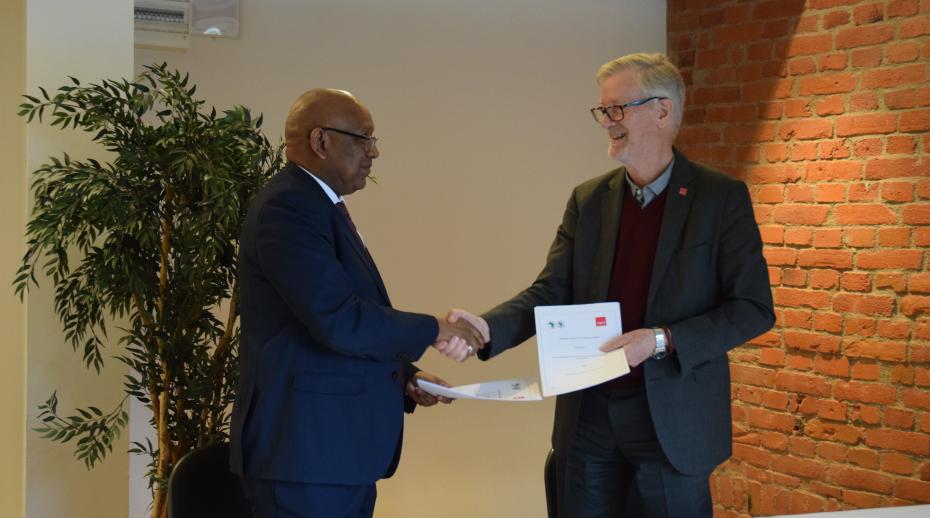
On 8 May, the Stockholm International Peace Research Institute (SIPRI) and the African Development Bank signed a Memorandum of Understanding (MoU) to deepen their collaboration in understanding and addressing fragility, insecurity and climate-related challenges in Africa.
The agreement—signed at the 2024 Stockholm Forum—further strengthens the ongoing collaboration between the organizations. The partnership draws on the dedication of both organizations to address the factors that drive fragility and insecurity, and to promote actions that prevent conflicts and build resilience, including to climate shocks and impacts.
Dan Smith, SIPRI Director, said: ‘With this new MoU, we will be leveraging our respective expertise and resources to contribute to system-wide approaches to tackle the interconnected issues of fragility, conflict and climate change.’ He continued: ‘By deepening the understanding of the drivers of conflict and insecurity, and the opportunities for sustainable peace, the partnership aims to enhance the policies, programmes and interventions of the bank and its partners, which will benefit some of the most vulnerable communities across the continent.’
Marie-Laure Akin-Olugbade, African Development Bank Vice President, Regional Development, Integration and Business Delivery noted: 'Our MoU with SIPRI reflects the Bank’s continued strong commitment to enhance its operational effectiveness in fragile settings. We aim to build resilience at scale on the continent and advance the prevention agenda through innovative partnerships across the humanitarian-development-peace (HDP) nexus. This is in line with the Bank’s new Ten-Year Strategy as well as the Strategy for Addressing Fragility and Building Resilience in Africa.'
About the African Development Bank
Founded in 1964, the African Development Bank is a multilateral institution whose objective is to contribute to the sustainable economic development and social progress of the African countries.
About SIPRI’s work on peace and development
SIPRI’s work on peace and development looks at the long-term causes of insecurity to understand how societies identify and navigate paths to sustainable peace. Developing and sustaining peace requires an understanding of the root causes of conflict and insecurity. SIPRI studies what fuels conflict and what drives long-term, positive change by analysing economic, social, political and environmental factors. The Institute contributes to both research and dialogue in order to inform policy and practice to forge a path to peace.